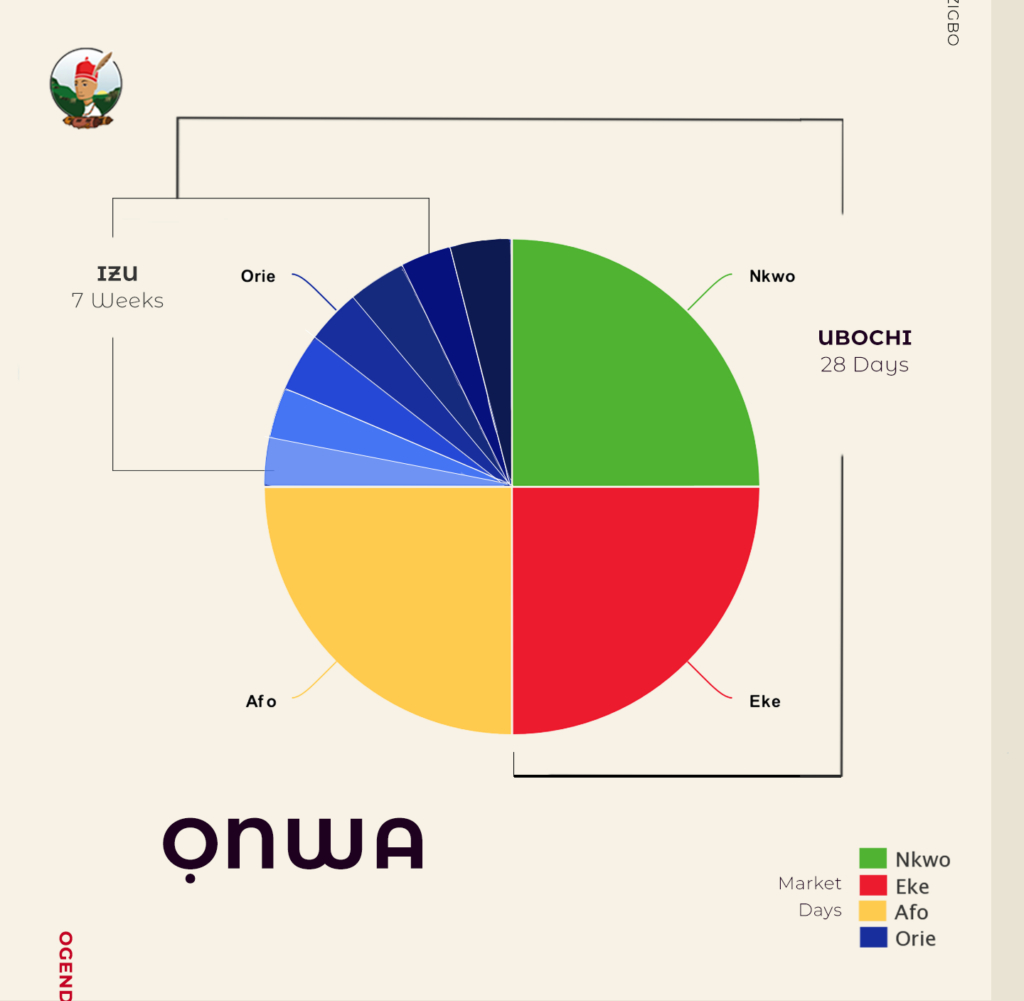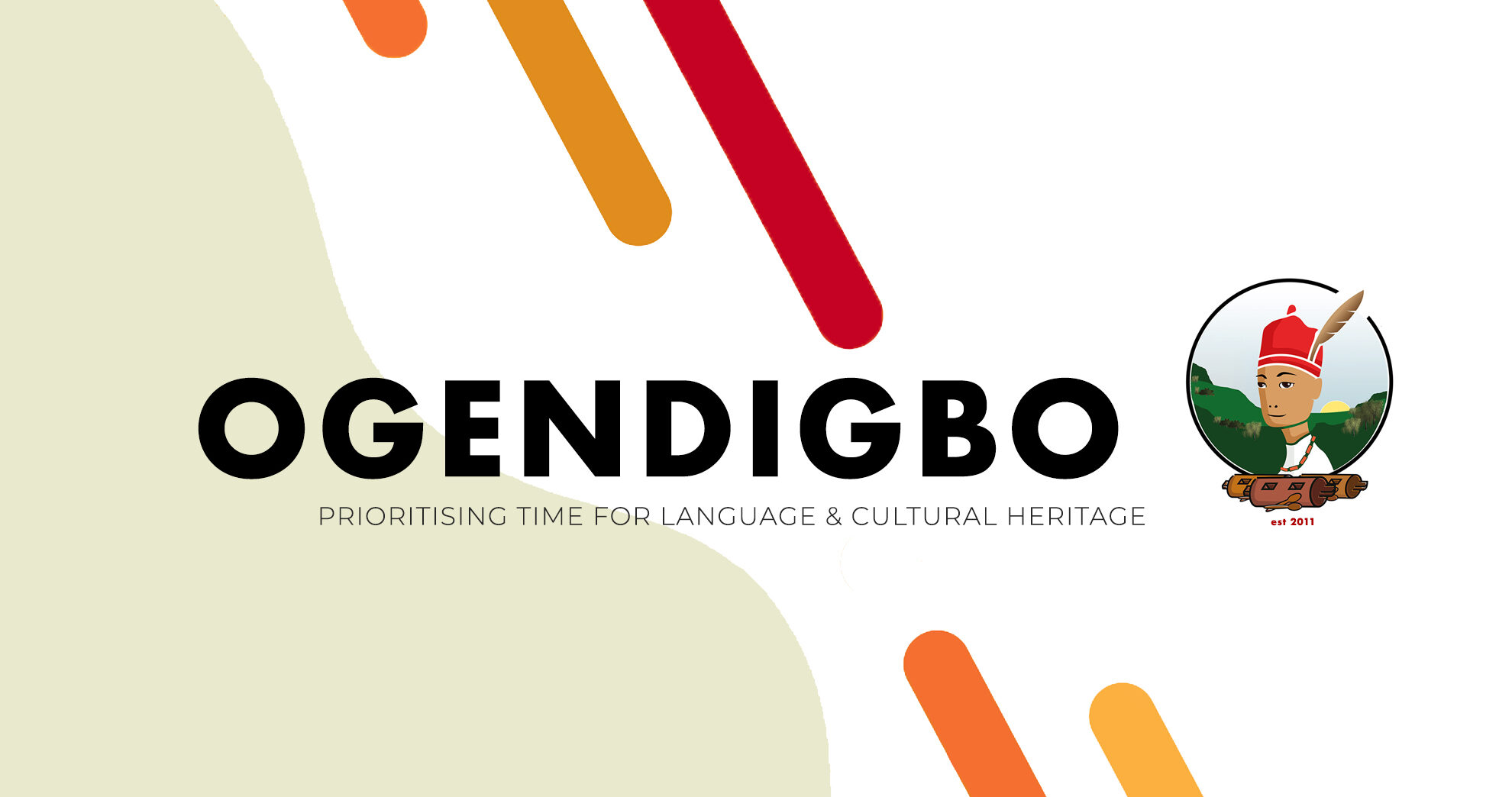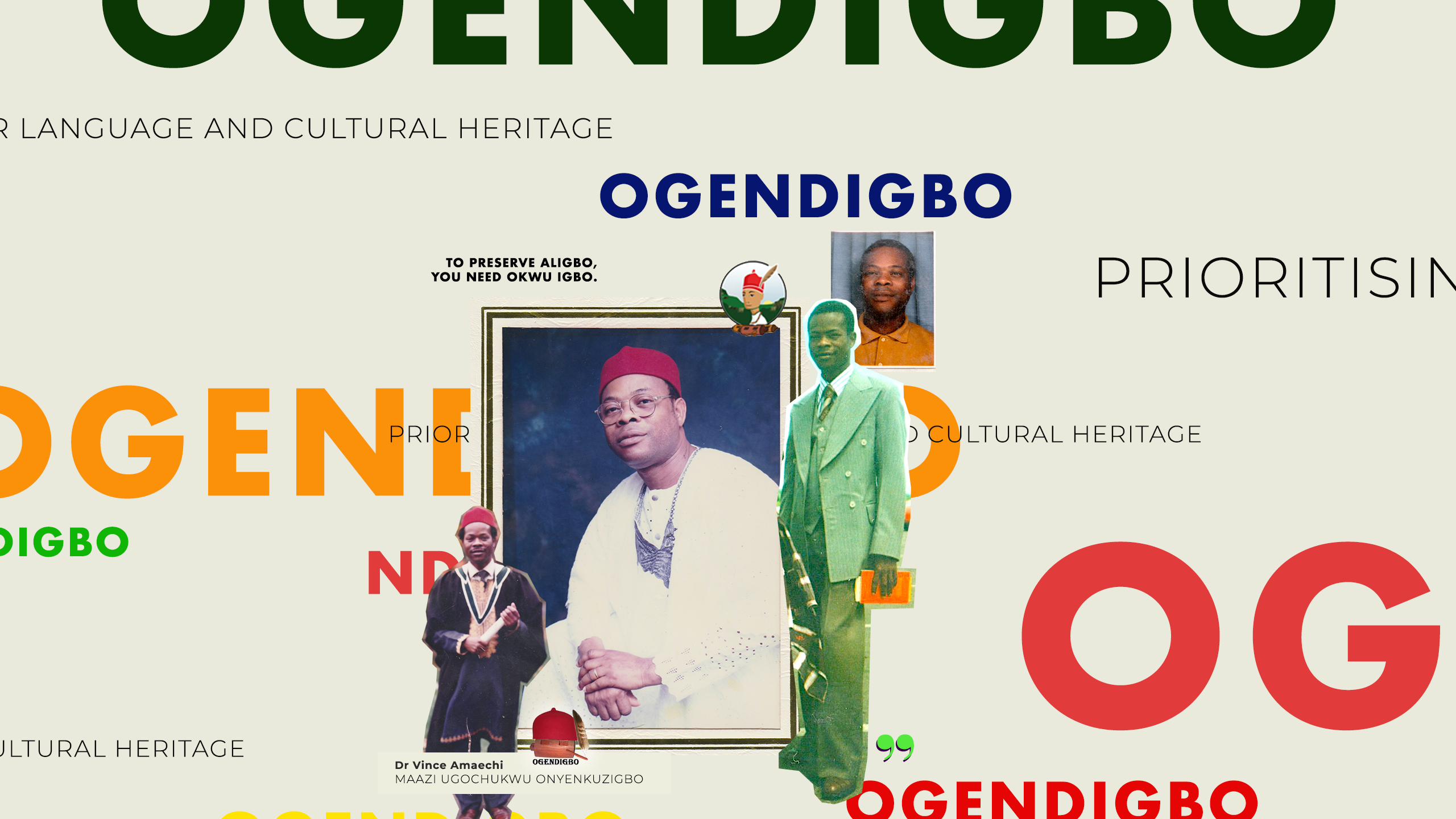
The traditional calendar has 13 months, in which there are 7 weeks and a 4 market day system, plus an extra day added at the last month of the year. So 13 lunar months, each with 28 days. Agriculture, trade, celebration, and competitive achievements play a major role in creating the Igbo calendar.
| Ọnwa Mbụ | The first month starts from the third week of February making it the Igbo new year. |
| Ọnwa Abụo | This month is dedicated to cleaning and farming. |
| Ọnwa Ife Eke | Is described as the hunger period. |
| Ọnwa Anọ | Ọnwa Anọ is when the planting of seed yams start. |
| Ọnwa Agwụ | Ọnwa Agwu is the traditional start of the year. Ịgọchi na mmanwụ come out in this month which are adult masquerades. The Alusi Agwu, of which the month is named after, is venerated by the Dibia (priests), of which Agwu is specifically worshiped by, in this month. |
| Ọnwa Ifejiọkụ | This month is dedicated to the yam deity ifejioku and Njoku Ji and yam rituals are performed in this month for the New Yam Festival. |
| Ọnwa Alọm Chi | This month sees the harvesting of the yam. |
| Ọnwa Ilo Mmụọ | A festival called Önwa Asatọ (Eighth Month) is held in this month. |
| Ọnwa Ana | Ana (or Ala) is the Igbo earth goddess and rituals for this deity commence in this month, hence it is named after her. |
| Ọnwa Okike | Okike ritual takes place in this month. |
| Ọnwa Ajana | Okike ritual also takes place in Ọnwa Ajana. |
| Ọnwa Ede Ajana | Ritual Ends |
| Ọnwa Ụzọ Alụsị | The last month sees the offering to the Alusi. |

An example of a month: Ọnwa Mbụ 
Ọnwa means moon in Igbo, this is the name of the cycle of a month.
Izu means week and there are seven Igbo weeks also known as Izu Asaa.
Ubochi means day and there are four market days named Eke, Orie, Afọ, Nkwọ.
The days correspond with the four cardinal points, Afọ; north, Nkwọ; south, Eke; east, and Orie to west.
Children can be named after the market day they were born on, for example, Mgbeke ( Agbogho means female child [born] on the day of Eke Market etc ), Mgborie, Mgbankwo, Mgbafo.
For male children, Oko (Okorie means male child) Okonkwo, Okorie, Okeke, Okafo. Nwa (means child in Igbo) and these names can be unisex; Nwaafo, Nwaeke Nwankwo and Nwaorie.

